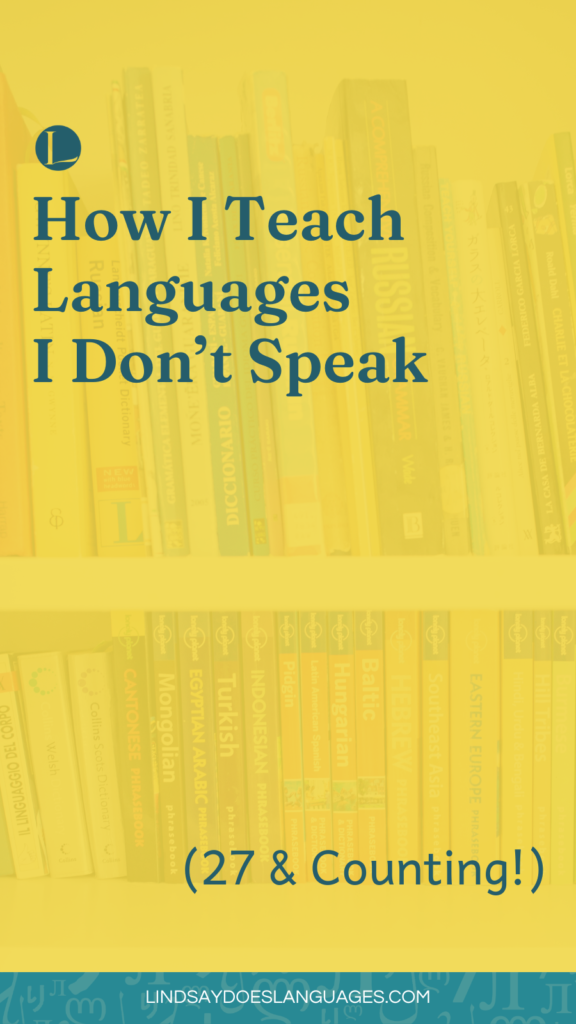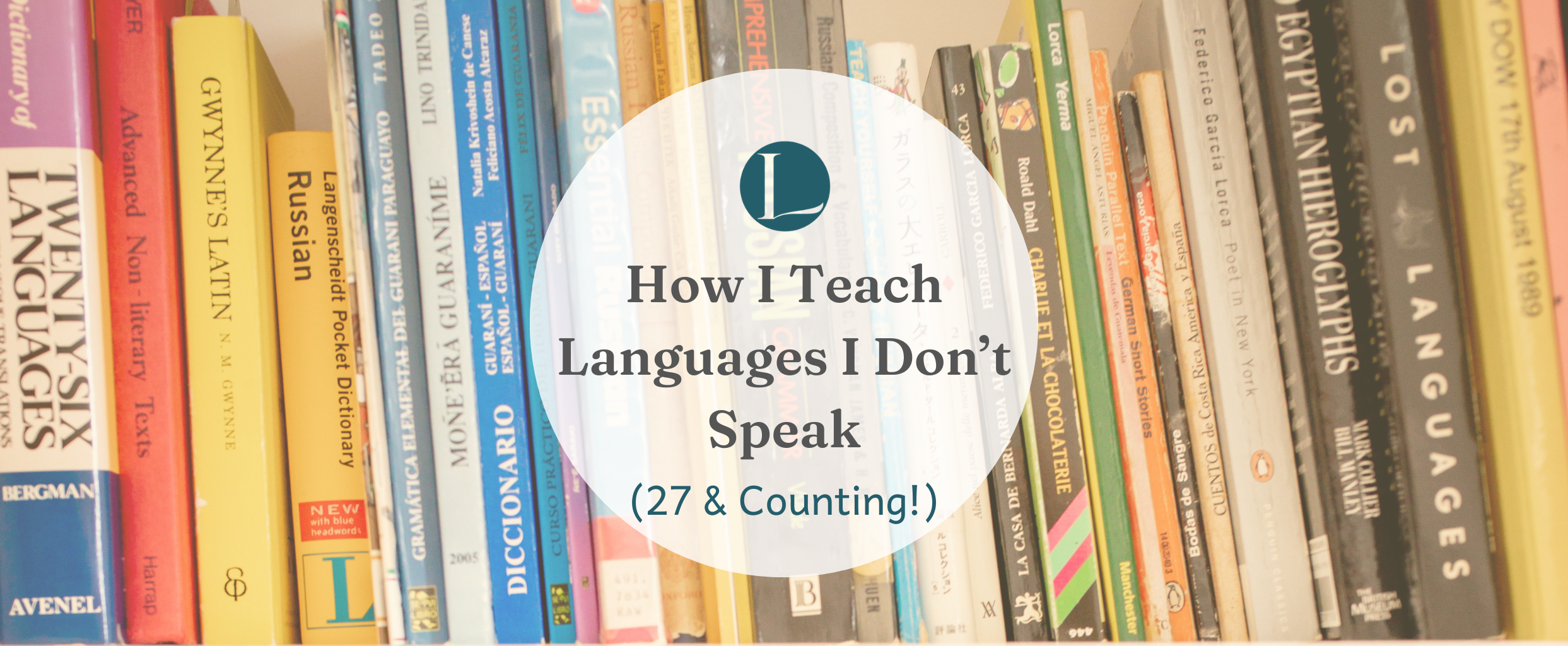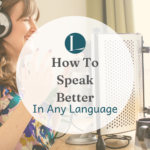Blog How To Learn A Language Podcast
March 25th, 2024
How I Teach Languages I Can’t Actually Speak In A New Way
Want to know how I teach languages I can’t speak? I’ve taught people 27 languages that I don’t speak (& counting!). And 9 languages I do. How? Let me explain.

Before we begin…
The Video
The Podcast
How I Teach Languages I Can’t Actually Speak In A New Way
So, curious how I teach languages I don’t speak? It’s really very simple. I don’t teach languages. Instead, I teach the much more valuable skill of how to learn languages.
Why is this more valuable?
Because with this, you can go on to learn any language in the world using the same processes and principles that I teach you.
It also means that you’re not wasting your time on someone else’s agenda of what’s “worth” learning. Instead, I show you how to figure out what’s worth learning for you.
On top of all of this, the skills it takes to learn languages successfully are super transferrable, so you can apply so much of the work we do to other areas of your life for benefits across your entire life.
Why do I do this?
Years ago, I did teach languages. I taught French, Spanish and English and I loved it. It was great. But the same things happened again and again.
I would leave after our weekly hour was up, I’d return the following week and say “What did you do?” to be met with a “Well….I was very busy this week.”
And when I realised that what we were doing together in that one hour out of an entire week wasn’t working, I adapted to incorporate elements of ‘how to learn languages’ where I could.
Soon enough after that, I realised this isn’t just limited to French, Spanish and English.
There are so many of us who have “become fluent in a language” on our bucket list who never do it.
Why? Because we don’t know how, because we’ve had rubbish experiences of school language lessons, because we don’t remember any of that school stuff we learnt, and because our time is precious.
We’re busy and we don’t have time to waste on learning a language if it’s not going to work. If it’s not going to be enjoyable. And if it’s not going to fit around our life.
In other words it needs to be flexible, functional, and fun.
That’s why I do what I do. To make language learning something we can all do, regardless of how busy we are. To make it as much a part of your regular life as brushing your teeth.
How do I do it?
The most important part of how I teach languages is that I teach you how to become your own teacher.
That may feel scary at first. After all, if it didn’t work when you had a professional teacher in the room, why would it work when you’re the teacher?
Because now it’s different, now you have me to help guide you through the process so that you can become your own teacher.
You can take control and autonomy over your languages and you can successfully become fluent in any language on demand.
How does it work?
I teach this primarily via Language Life, and Language Life works for any language because the principles of language learning are the same.
Yes, even if there’s a different writing system.
Yes, even if there’s very few resources available.
And yes, even if it’s typically called a “difficult” language.
Of course, some of these core principles are connected to language skills, such as reading, listening, writing and speaking, and areas such as vocabulary and grammar.
But there’s more too around topics like goals, habits, motivation and mindset, people, integrating languages into your life.
And it’s only when we consider all of these as a whole that things piece together.
Too often, there’s a strong focus on just one or two elements such as speaking. But that doesn’t work because it doesn’t help you understand what’s being said to you (listening), know what to say (vocab & grammar), and feel confident to speak (mindset).
That’s why the fuller picture we work on together in Language Life works so well, because it gives you everything you need to support your big fluency dreams for your specific languages.
When you understand these core principles, you apply them right away to your own language learning & you’ll be learning quicker and easier than before.
That’s how I teach languages I don’t speak.
How is it adaptable to different languages?
Because with how I teach languages, I’m not teaching you a specific language, we’re not spending time on the niggles like rote learning case endings or monotonous verb conjugations.
And with what we do learn, the how to of language learning, throughout the curriculum you have space and time to apply everything.
Most folk can roll with this on their own, but when questions do come up, you’re not left high and dry either. When language specific questions do come up and you’re wondering how to apply a certain framework or approach to your language and your situation, you have multiple ways to get the direct support and feedback from me that you need.
I answer your questions via our Question Bank private podcast feed or in our End of Module 1:1 Check-Ins. So together we’re always able to adapt the program to different languages for you.
Wouldn’t I benefit more from being in a language specific program?
Language specific programs can be great options, but there’s something to remember.
You’re still following someone else’s idea of what’s important to learn next, you’re still going to have un-necessary-to-you vocab to learn, and you’re still going to end up with gaps in your knowledge.
When you join Language Life, you’ll be able to actually choose what is and isn’t worth your time and attention. So you can still use any language specific programs you’re in, but much more effectively, because you’ll know how to use it.
Plus, being in a group program with learners of multiple languages means you’ll hear questions answered that you didn’t know were relevant to you..until you hear them. There’s something to learn from every language experience.
There’s no room in language specific courses for the conversations we get to have in Language Life. That means you get to go deeper & experience your language on a new level.








